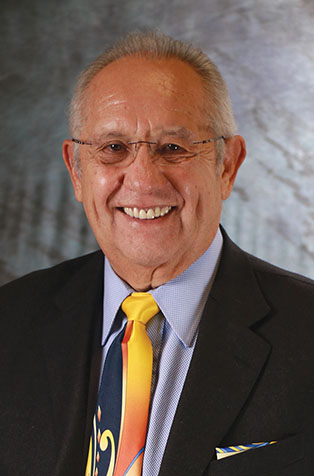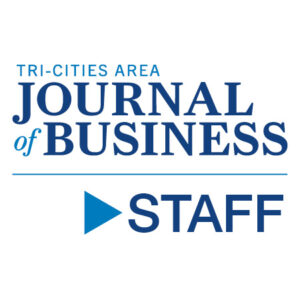
Home » Q&A with Carlos Olivares
Q&A with Carlos Olivares

February 18, 2020

Chief Executive Officer
Yakima Valley Farm Workers Clinic
Number of employees you
oversee:
Last year we employed 2,015
employees, and 623 volunteers and career placements. This includes 166 medical
providers, 35 dentists and 18 pharmacists.
What is Yakima Valley
Farm Workers Clinic?
Yakima Valley Farm Workers
Clinic is a Community Health Center and a system of care that serves people who
live in poverty. We are uniquely suited to assist individuals who have more
challenges than the average, middle-class community member. In addition to
medical and dental care, we provide integrated behavioral health, integrated
nutrition services and whole host of additional programs and services.
Brief background on the
organization:
Yakima Valley Farm Workers
Clinic was founded in the 1970s to address the health care needs of migrant and
seasonal agricultural workers living in the Yakima Valley. Over the course of
the last four decades, we have grown to serve communities across Washington and
Oregon where people are struggling to support their families.
How did you land your
current role? How long have you been in it? What drew you to this work?
I was recruited by
organization in 1986. After my interview, I accepted the position which I have
now held for 36 years.
There was significant need
in the community, and I felt that I was well suited to help the board of
directors meet that need.
Tell us about your
business model and why it works when so many health care organizations are
struggling?
We have built our
infrastructure to ensure that we deliver high quality care, which ensures that
our patients are satisfied with the care we provide and, therefore, we have
patients who have been loyal to our organization for the last 35 years.
We run a business and as
such, we must ensure that part of our strategy is to think about long-term
sustainability.
Managing our resources is a
major priority in our organization.
Sustainability is not all
about resources, but is also about ensuring that we recruit and retain the
right people dedicated to the mission of our organization. We have been
incredibly successful in retaining our staff by ensuring that they have the
tools they need to be successful in their work.
What should Tri-Citians
know about the organization and its local clinics, including the Miramar
Clinic, which is being built near Vista Field in Kennewick?
As an organization, we have
a long history of caring for the migrant/seasonal community as well as the
low-income community which struggles getting the appropriate care.
The community should know
that we are a fully integrated health care system dedicated to improving the
lives of our communities.
This means, when a patient
comes to see us, we will deliver their medical, dental, behavioral health,
nutritional health care and more.
Our new Miramar Health
Center in Kennewick will expand its services to address not only medical care
patients need, but also dental, pharmacy, social services as part of our
integrated model.
What is one
characteristic that you believe every leader should possess?
An understanding of the
population we are serving, having the compassion to care for the people in your
communities and to be a fiscally responsible individual.
What is the biggest
challenge facing you as a manager today?
We are continually
challenged by the lack of health care professionals willing to do the work we
do in the locations in which we provided that care. Human capital is the most
difficult to attain and to retain.
If you had a magic wand,
what would you change about your field?
I would build a completely
new reimbursement system that rewards performance and outcomes focusing on
access and quality of care.
What advice would you give
someone going into a leadership position for the first time?
Create a vision, build good
partnerships and be fiscally responsible; three of the critical elements to
build a consistent and successful delivery system.
Who are your role models
or mentors?
Dr. Monahan, a dedicated
physician who provided health care for the migrant/seasonal farmworkers at a
time where there was very little support from the community for that type of
work. He was a good mentor and someone I admired.
I always was amazed at the
courage and the commitment that Cesar Chavez had toward serving the
migrant/seasonal farmworker.
How do you measure
success in your workplace?
If we have created access to
care for patients who otherwise are struggling to get services and we have
treated our patients with care and dignity, then we are very successful.
How do you keep your
employees motivated?
We provide them with the
tools that they need to be the best they can be in the work that they are
doing. We pay them well so that they feel valued and we provide them with
opportunities to advance and learn.
What do you consider your
leadership style to be?
I have always attempted to
be focused on our patients and have created a culture of responsibility that
has allowed us to grow and be an organization that focuses on our communities.
Leadership, in my opinion,
is not a question of style but a question of results.
How do you balance work
and family life?
It is always a difficult
task in that both are incredibly important and are a major priority in my day
to day life.
What do you like to do
when you are not at work?
Play tennis and ride
motorcycles.
What’s your best time
management strategy?
I don’t have one. The work
needs to be done and I need to attend to my family and I do both the best way I
can.
Best tip to relieve
stress?
Stay organized and be
consistent.
What’s your favorite
book?
My favorite book is “The
House on Mango Street,” by Sandra Cisneros, and “One Hundred Years of Soledad,”
by Gabriel Garcia Marquez.
Do you have a personal
mantra, phrase or quote you like to use?
When it comes to our work,
‘no’ is a temporary obstacle.
Q&A Local News Health Care
KEYWORDS february 2020





